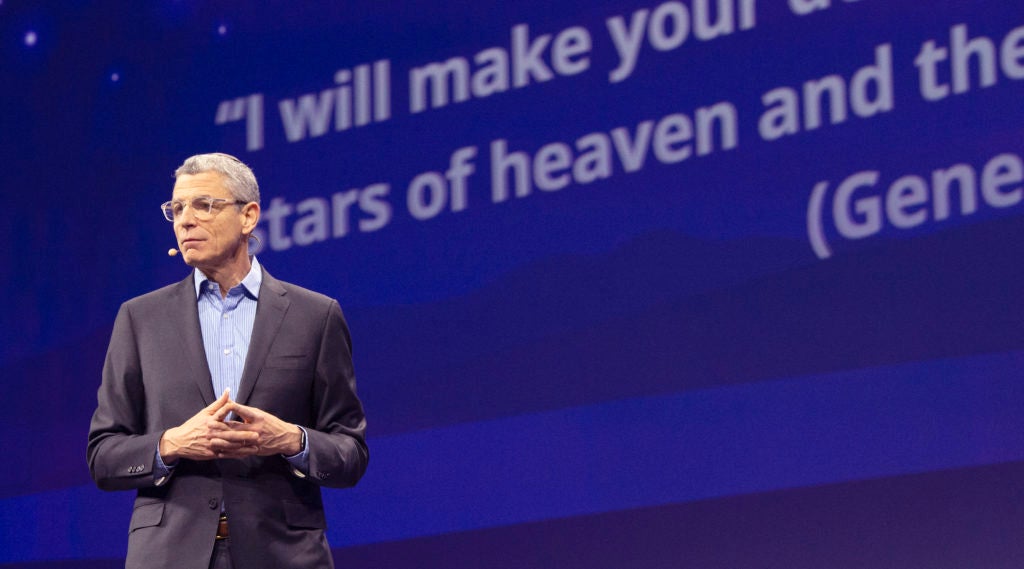Reform movement: IHRA definition of anti-Semitism is helpful but should not be codified into law
Published January 25, 2021

(JTA) — A common and increasingly controversial definition of anti-Semitism is helpful but should not be given the force of law.
That’s what the Reform movement, America’s largest Jewish religious denomination, had to say in a statement published Monday about the International Holocaust Remembrance Alliance’s working definition of anti-Semitism. The definition includes 11 examples of how anti-Semitism can manifest, mostly involving speech about Israel.
A growing number of countries and organizations have adopted the definition, which has become a lighting rod for debate over if and when criticism of Israel is anti-Semitic. Its defenders, including many Jewish organizations, say it singles out criticism of the Jewish state only when it crosses a line into hate speech. Critics of the definition, like pro-Palestinian activists and human rights groups, worry that it could criminalize legitimate criticism of Israeli policy.
The Reform statement, by four organizations in the movement, aims to stake out a middle ground — endorsing the definition but opposing its codification in law. The statement also cautions that the IHRA definition’s examples could divert attention from the threat of far-right anti-Semitism.
“For years, this definition has been used in U.S. and international reporting on antisemitism around the world to help ensure its accuracy and comprehensiveness, and we affirm our own support today,” says the Reform statement. Its four signatories are the Union for Reform Judaism, the Central Conference of American Rabbis, Women of Reform Judaism and the Zionist group ARZA.
“Our commitment to principles of free speech and concerns about the potential abuse of the definition compel us to urge its use only as intended: as a guide and an awareness raising tool,” the statement says. “The definition should not be codified into policy that would trigger potentially problematic punitive action to circumscribe speech.”
The statement is effectively a dissent from the position of the Conference of Presidents of Major American Jewish Organizations, which aims to speak for a range of Jewish establishment groups, including the four Reform organizations, on matters of government policy. In a recent letter, the Presidents Conference urged the Biden administration to “consider the [IHRA] definition” and its examples in its work, similar to Trump administration policy.
The separate Reform statement indicates that the Presidents Conference letter does not speak for a sizable swath of its own membership. Regarding the letter’s call for the Biden administration to use the definition in enforcing laws, Rabbi Rick Jacobs, president of the Union for Reform Judaism, said, “On that point we would fundamentally disagree. It is not helpful to try to ensconce this definition across every area of the federal government.”
The Presidents Conference stance also comes amid ongoing debates over Israel criticism. Several campuses have faced federal civil rights investigations due in part to anti-Israel activities. A freshman Democratic congressman, Jamaal Bowman of New York, was recently accused of anti-Semitism for calling Israel’s vaccine policies “cruelty.” Coalitions of scholars and activists have debated the proper application of the IHRA definition.
The definition’s text says it is “non-legally binding,” and its lead author, Kenneth Stern, has made largely the same argument as the Reform groups: that the definition is a resource, not a legislative document. Jacobs told the Jewish Telegraphic Agency that he worries the definition could be used to chill or penalize legitimate criticism of Israel.
“There are those today who would weaponize the definition and use it, frankly, to stifle free speech,” he said. “It is critical that we not weaponize the definition but work to improve how we handle education, reporting, monitoring and responding to anti-Semitism.
He added, “We also know there is legitimate criticism of Israel.”
In 2019, President Donald Trump signed an executive order essentially adopting the working definition as a reference for adjudicating civil rights complaints on campus. Jacobs said he believes the order and declarations like it are an overstep, and can lead to a “slippery slope.”
While the rabbi strongly disagrees with anti-Israel groups, as well as with the movement to boycott Israel, he does not feel all boycott activists and their groups should necessarily be branded as anti-Semitic.
“I think there is a concerning trend to label groups, including Jewish groups, that are strongly critical of Israeli policy — whether those are policies within the Green Line, whether those are policies in the occupied West Bank — as anti-Semitic, and in a sense demonize those organizations,” Jacobs said.
In addition to fears of limiting free speech, the Reform statement also says the definition’s Israel examples “must not divert attention from the more frequent manifestations of antisemitism, too often violent, emanating from new streams in the hate movements” that are “primarily associated with the far right.”
Jacobs added that he does not believe supporting Israel and opposing anti-Semitism are one and the same.
“There are individuals and countries that are very pro-Israel but very weak in combating anti-Semitism,” he said. “There are groups that are very tolerant and supportive of Jewish people but absolutely antagonistic to the State of Israel, and the lines can be slippery.”
Jacobs hopes that the definition will be useful as a guidepost for the Biden administration. But he and the Reform movement want the administration to focus its anti-bigotry efforts on improving hate crime reporting, securing vulnerable institutions and curbing hate speech on social media.
Regarding the IHRA definition, he said, “If we’re just keeping it as what it’s meant to do — a nonbinding working definition — it’s really helpful.”














